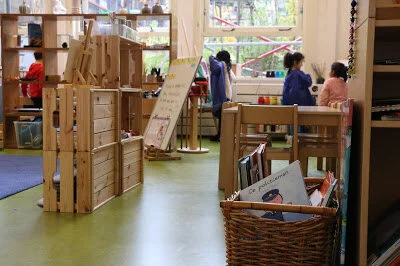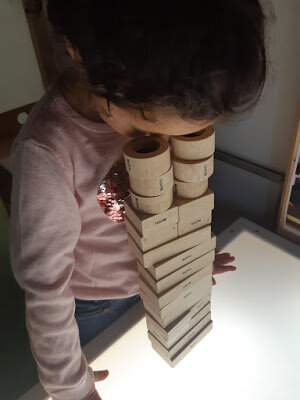GRATEFULNESS IN TIMES OF COVID
Fiona’s last addition to the Unpacking Our Pedagogy blog dates from April 2020. A beautiful contemplation on the effect of the pandemic on our well-being, the desire to quickly figure out home learning and the challenge of staying connected.
Fiona left us with a few powerful questions:
So what now? What next? Will we ride out the storm, and resume the transmission of education just as it was before? Or will we take stock, value the gift of this epoch, a different view, and choose a different path for re-entry?
How will we seize this opportunity for what Positive Psychologists (and generations of thinkers before them) refer to as post-traumatic growth?
How will we move forward on the other side of the pandemic... leveraging this new learning about ourselves, our children and our communities?
Unfortunately, COVID is, after almost a year, still among us and disrupting our lives. A lot of our thinking has gone into constantly adapting to ever-changing circumstances. From time to time, this has influenced my sense of well-being, particularly when new protocols severely impacted the way we learn together as a learning group.
At some point, I realized these feelings stopped me from being engaged, focused, curious and creative. It prevented me from being, as Kerry Howells describes it, ‘awake’. She believes that by creating a state of preparedness before and during learning activities, students and educators can be encouraged to be more aware of the learning taking place and those involved in the process. This state of ‘being awake’ is evoked by acknowledging what we receive, by expressing our gratitude.
“Gratitude, when considered as a pedagogy and not as an emotion, is an approach to learning and teaching that actively involves the acknowledgement of what we have or receive and the conscious action of wanting to give back in some way.”
(Howells, K. (2014). An exploration of the role of gratitude in enhancing teacher-student relationships. Teaching and Teacher Education, 42)
Well-being and mental health are key to thriving learning communities. This pedagogy is highly relevant in the present and near future and could support us with remaining optimistic in the face of adversity. So here it is, an acknowledgement of what I am grateful for this past year.
Beautiful shared learning spaces that support children’s research.
Collaborative planning responsive to both the learning goals and children’s emerging interests, ideas and theories.
A thriving culture of curiosity.
A deepened awareness of documentation as a means that makes visible the processes of learning and relationships.
The sincere relationships and collaboration with my colleagues which has led to deeper understandings of our practices, shared values and beliefs.
An ongoing investigation into how space, time, materials, interactions and relationships support children in their role-play scenarios.
We acknowledge children’s passion for dramatic play and notice how this supports them with the development of social skills, communication and the ability to respond to others’ ideas.
It is true that our focus has the potential to fuel an evolution of ideas, dispositions and abilities. I am going to continue to focus on the good, remain grateful and be mindful of how I can give back in some way. I wonder:
What are the things that you are grateful for?
How can you become more conscious of how you can give back what you have learned?
Anne







